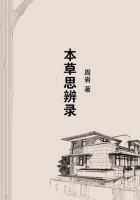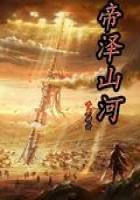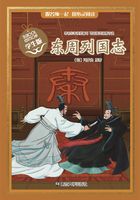The motive of his visit to the cemetery remained undefined save as a final effort of escape from his wife's inexpressive acceptance of his shame. It seemed to him that as long as he could keep himself alive to that shame he would not wholly have succumbed to its consequences. His chief fear was that he should become the creature of his act. His wife's indifference degraded him; it seemed to put him on a level with his dishonor. Margaret Aubyn would have abhorred the deed in proportion to her pity for the man. The sense of her potential pity drew him back to her. The one woman knew but did not understand; the other, it sometimes seemed, understood without knowing.
In its last disguise of retrospective remorse, his self-pity affected a desire for solitude and meditation. He lost himself in morbid musings, in futile visions of what life with Margaret Aubyn might have been. There were moments when, in the strange dislocation of his view, the wrong he had done her seemed a tie between them.
To indulge these emotions he fell into the habit, on Sunday afternoons, of solitary walks prolonged till after dusk. The days were lengthening, there was a touch of spring in the air, and his wanderings now usually led him to the Park and its outlying regions.
One Sunday, tired of aimless locomotion, he took a cab at the Park gates and let it carry him out to the Riverside Drive. It was a gray afternoon streaked with east wind. Glennard's cab advanced slowly, and as he leaned back, gazing with absent intentness at the deserted paths that wound under bare boughs between grass banks of premature vividness, his attention was arrested by two figures walking ahead of him. This couple, who had the path to themselves,moved at an uneven pace, as though adapting their gait to a conversation marked by meditative intervals. Now and then they paused, and in one of these pauses the lady, turning toward her companion, showed Glennard the outline of his wife's profile. The man was Flamel.
The blood rushed to Glennard's forehead. He sat up with a jerk and pushed back the lid in the roof of the hansom; but when the cabman bentdown he dropped into his seat without speaking. Then, becoming conscious of the prolonged interrogation of the lifted lid, he called out-- "Turn--drive back--anywhere--I'm in a hurry--"As the cab swung round he caught a last glimpse of the two figures. They had not moved; Alexa, with bent head, stood listening.
"My God, my God--" he groaned.
It was hideous--it was abominable--he could not understand it. The woman was nothing to him--less than nothing--yet the blood hummed in his ears and hung a cloud before him. He knew it was only the stirring of the primal instinct, that it had no more to do with his reasoning self than any reflex impulse of the body; but that merely lowered anguish to disgust. Yes, it was disgust he felt--almost a physical nausea. The poisonous fumes of life were in his lungs. He was sick, unutterably sick. . . .
He drove home and went to his room. They were giving a little dinner that night, and when he came down the guests were arriving. He looked at his wife: her beauty was extraordinary, but it seemed to him the beauty of a smooth sea along an unlit coast. She frightened him.
He sat late that night in his study. He heard the parlor-maid lock the front door; then his wife went upstairs and the lights were put out. His brain was like some great empty hall with an echo in it; one thought reverberated endlessly. . . . At length he drew his chair to the table and began to write. He addressed an envelope and then slowly re-read what he had written.
"MY DEAR FLAMEL"
"Many apologies for not sending you sooner the enclosed check, which represents the customary percentage on the sale of the Letters.""Trusting you will excuse the oversight, "Yours truly, "STEPHEN GLENNARD."He let himself out of the darkened house and dropped the letter in the post-box at the corner.
The next afternoon he was detained late at his office, and as he was preparing to leave he heard someone asking for him in the outer room. He seated himself again and Flamel was shown in.
The two men, as Glennard pushed aside an obstructive chair, had amoment to measure each other; then Flamel advanced, and drawing out his note-case, laid a slip of paper on the desk.
"My dear fellow, what on earth does this mean?" Glennard recognized his check.















